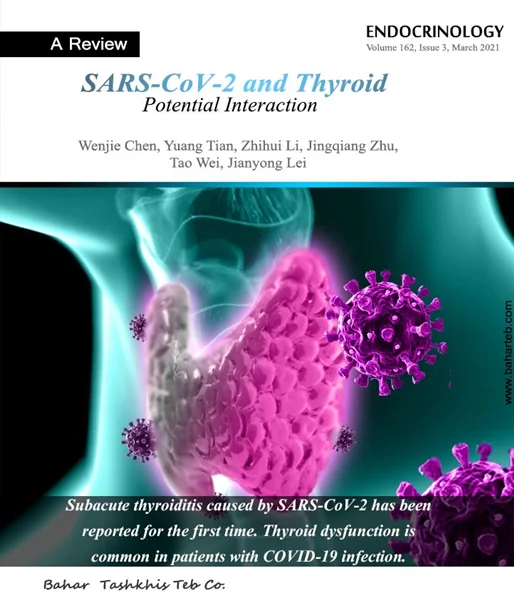Abstract
The novel coronavirus disease 2019 (COVID-19) produced by severe acute respiratory syndrome coronavirus 2 (SARS-CoV-2) is sweeping the world in a very short time. Although much has been learned about the clinical course, prognostic inflammatory markers, and disease complications of COVID-19, the potential interaction between SARS-CoV-2 and the thyroid is poorly understood. In contrast to SARS-CoV-1, limited available evidence indicates there is no pathological evidence of thyroid injury caused by SARS-CoV-2. However, subacute thyroiditis caused by SARS-CoV-2 has been reported for the first time. Thyroid dysfunction is common in patients with COVID-19 infection. By contrast, certain thyroid diseases may have a negative impact on the prevention and control of COVID-19. In addition, some anti–COVID-19 agents may cause thyroid injury or affect its metabolism. COVID-19 and thyroid disease may mutually aggravate the disease burden. Patients with SARS-CoV-2 infection should not ignore the effect on thyroid function, especially when there are obvious related symptoms. In addition, patients with thyroid diseases should follow specific management principles during the epidemic period.
Endocrinology, Volume 162, Issue 3, March 2021, bqab004, https://doi.org/10.1210/endocr/bqab004


دیدگاه خود را بنویسید